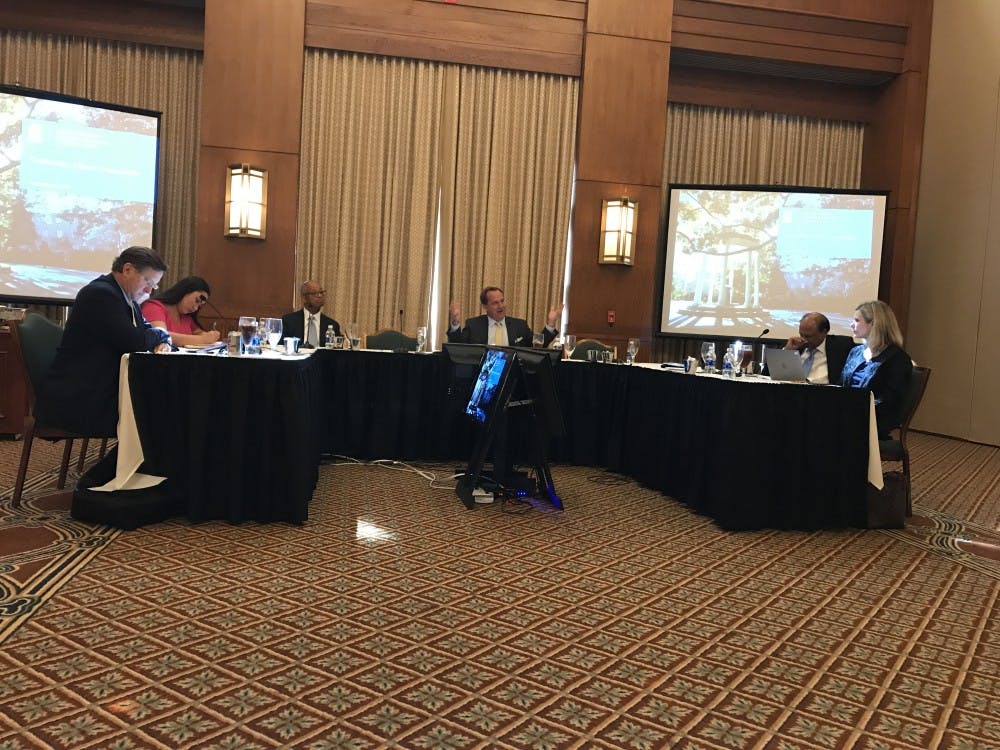The University Affairs Committee assembled on Wednesday. Here’s the rundown:
The Chancellor’s Task Force on UNC-Chapel Hill History wrapped up the meeting by providing updates on the Unsung Founder's renovation and repair and possible design methods for future monuments.
Professor and task force member James Leloudis updated the committee on renovations and repairs of the Unsung Founders Memorial. He proposed the grade surrounding the memorial be evened.
Leloudis discussed the possible monument markers that can be used on grounds, like inset, raised and monolithic markers. The task force has been discussing the incorporation of online content that would appear on a cell phone when in close proximity of the monument.
“We are working on some of drafting of the text of these monuments,” Leloudis said. “We’ve begun scholarly review by experts in related fields of Civil War history, Confederate memory, American history, slavery and American Indian history.”
Duckett opened the meeting by addressing the nature of the Silent Sam discussion.
Leloudis did not discuss Silent Sam in his presentation. Instead, Chairperson Charles Duckett made a comment at the start of the meeting.
In reference to recent reports of police officers going undercover at Silent Sam, Duckett said he respects the officers and admires them for their service. He congratulated the meeting attendees and those from earlier meetings of the day on their civility and professionalism.
“I will say, something I feel very strongly about with regard to the policing around Silent Sam and on this campus is I think a lot of the opinions and statements are more opinion than fact,” Duckett said. "(Police) do a great job protecting our university, and I think it is a very safe university.”




